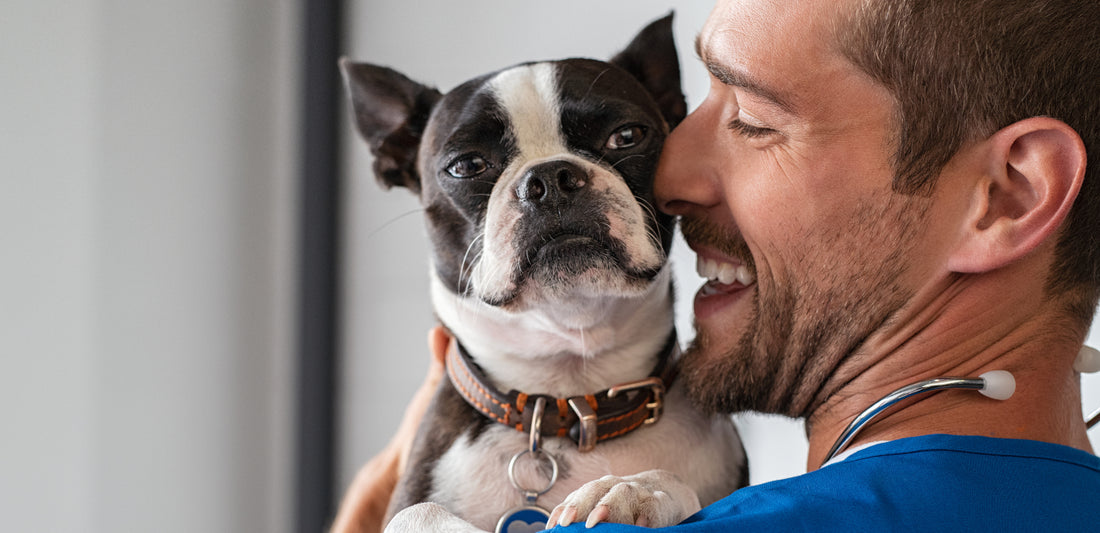When you get a new puppy, the first thing on your mind is probably "when can I take him out for a walk?" But before you can take your pup anywhere, you need to make sure he's up-to-date on his vaccinations. Puppies need to be vaccinated against several life-threatening diseases, and there are specific guidelines as to when and how to vaccinate them.
In this blog post, we will discuss the benefits of puppy vaccinations, what vaccines to give, when to give them, and the next steps once you've welcomed your new pet into the family!
What are Puppy Vaccinations?
Puppy vaccines help keep your pet safe from harmful illnesses. Vaccines assist in developing a dog's immune system so that they can fight off any infections caused by harmful microorganisms. Antigens in vaccines, which resemble disease-causing germs but don't actually result in your puppy getting sick, mimic these organisms. They stimulate the immune system so that it can recognize and remember the antigens in the vaccine. This way, if a dog is exposed to a genuine disease, its immune system will be prepared to fight it off or at the very least lessen its severity.
This is why vaccinations have become a regular part of caring for your new puppy. It's not only the responsible thing for your own puppy, but it also helps to keep other dogs safe from a serious illness.

Benefits of Puppy Vaccination
The benefits of puppy vaccinations are two-fold: they protect your puppy from getting sick and they enable you to register your dog.
Puppies are especially susceptible to illness because their immune system is not yet fully developed. They can pick up potentially deadly diseases simply by walking down the sidewalk in the footprints of an infected dog, or by sniffing near a place where an infected dog relieved itself. That’s why it’s safe for a new puppy to be walked in public places, interact with other dogs, or even visit your favorite beach only after they’ve been fully vaccinated.
The most common of these diseases (and the most important to vaccinate against) include:
- Parvo—a highly contagious disease that attacks a puppy's gastrointestinal system.
- Distemper—a virus that affects a puppy's respiratory, gastrointestinal, and nervous systems.
- Adenovirus—a virus that primarily affects a puppy's respiratory system but can also cause liver disease.
- Bordetella—a bacterial infection that primarily affects a puppy's respiratory system.
- Hepatitis—a virus that affects a puppy's liver.
- Rabies—a virus that primarily affects the nervous system and is fatal.
In addition to protecting your puppy, proof of rabies vaccination is also a legal requirement to register your dog. Registering your dog and being able to display a valid license from your county opens up a world of opportunities for your dog. Would you like to pursue a good citizenship or companion animal designations, letting them off-leash at the beach, or even taking them to the dog park? Your dog's license opens those doors.
What types of vaccines does a puppy need, and when should they start treatment?
There are several different types of vaccines available for puppies, a licensed veterinarian will be able to advise you on which ones are right for your pet based on their age and health. The most common vaccines are the five-way (which protects against a variety of diseases including parvo, distemper, and hepatitis) and the six-way (which covers everything in the five-way as well as canine coronavirus).
A regular course of vaccines will typically include a total of four shots from week eight to week sixteen. This series consists of a single "five-way", followed by two "six-way" vaccines, each of which are administered three to four weeks apart. A rabies shot will also be administered during this time. Once all three primary shots and the separate rabies shot have been completed, your pup is considered fully vaccinated and would only need an annual booster shot to maintain their immunity.
These vaccinations are typically given at the vet's office, but some pet stores also offer this service. For example, your pup can get all of its shots at our low-cost vaccine clinics held regularly, multiple times every month, at many of our locations. Or you can even buy the five-way and six-way vaccines from one of our feed locations and administer them yourself!
You are able to give your puppy every shot they need to be healthy with the exception of their state-required rabies shot. Rabies vaccinations must be administered and recorded by a licensed vet.
Next Steps After Getting Your New Puppy fully Vaccinated
Now that your dog is fully vaccinated, you can submit their vaccine records to your county to begin the process of registering and licensing your dog. This is the last step toward being able to take them on all the adventures they've been waiting to go on with you!
Thanks for reading our article on puppy vaccinations! If you have any questions, we're always happy to help! Feel free to give us a call, shoot us an email, or stop by your local Kahoots Pet store.

